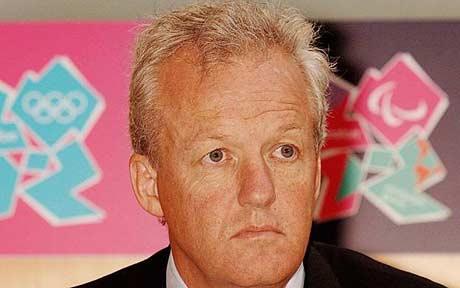By Duncan Mackay
British Sports Internet Writer of the Year
May 15 – West Ham United’s bid to take over the Olympic Stadium after the London 2012 Olympics and Paralympics has been backed by Simon Clegg (pictured), the former chief executive of the British Olympic Association (BOA).
Clegg, one of the leading architects of London’s successful bid who is now the chief executive of Championship club Ipswich Town, has been in touch with West Ham to offer his support to their attempts to move into the Stadium.
He said: “The whole of the London bid was built around not creating white elephants, yet for the biggest stadium of all we have not been able to find a long-term tenant, a long-term solution to that problem.
“The current plan is to reduce the stadium down from 80,000 seats to 25,000 after the Games.
“That’s fine but who is going to use a 25,000 stadium every week in this country?”
West Ham, who have put in a joint submission with Newham Council, are one of more than 100 groups who contacted the Olympic Park Legacy Company (OPLC) to express an interest in taking over the Stadium.
But Clegg warned that if West Ham do move into the Stadium then they must retain the running track.
He said: “The bottom line is that we made a commitment during the bid phase to the IOC (International Olympic Committee) that we would retain an athletics track in legacy mode and that has to be delivered.
“A track has to remain at the stadium.
“What we hadn’t done at that stage is think through what the long-term legacy was going to be for the stadium with the athletics track as an integral part of it.
“There are several national athletics tracks around the country and quite rightly UK Athletics want to spread their competitions around the country.
“They also have their National High Performance Centre down the road at Picketts Lock, so they could not become the sole anchor tenant for the stadium.
“Therefore it’s going to have to be a shared facility and it seems to me that football is the primary user of large stadia in this country and with West Ham in need of a suitable facility and very local, that looks like a very good solution.”
Football clubs in Britain have usually shied away from playing in stadiums that have an athletics track because of fears that the spectators do not like being so far away from the action.
But Clegg does not think this should be a major obstacle.
He said: “While there may be a fixation in this country that we can’t live with an athletics track around a football pitch, if you go on the continent that is a model that you frequently find, including at some of the biggest clubs in Europe.
“There are other options but I’m convinced that the best possible long-term solution and the least drain on the public purse is a football club, like West Ham, going in and operating as the anchor tenant.”
Contact the writer of this story at zib.l1745222974labto1745222974ofdlr1745222974owedi1745222974sni@y1745222974akcam1745222974.nacn1745222974ud1745222974
Related stories
May 2010: West Ham Olympic Stadium bid boosted by UK Athletics boss
May 2010: West Ham face challenge from AEG for Olympic Stadium
April 2010: Essex Eagles set to join West Ham in swoop for Olympic Stadium
April 2010: Olympic Stadium is for future, avoid relegation first, Brooking warns West Ham
March 2010: Mihir Bose – West Ham Olympic Stadium saga is beginning to repeat itself as farce

